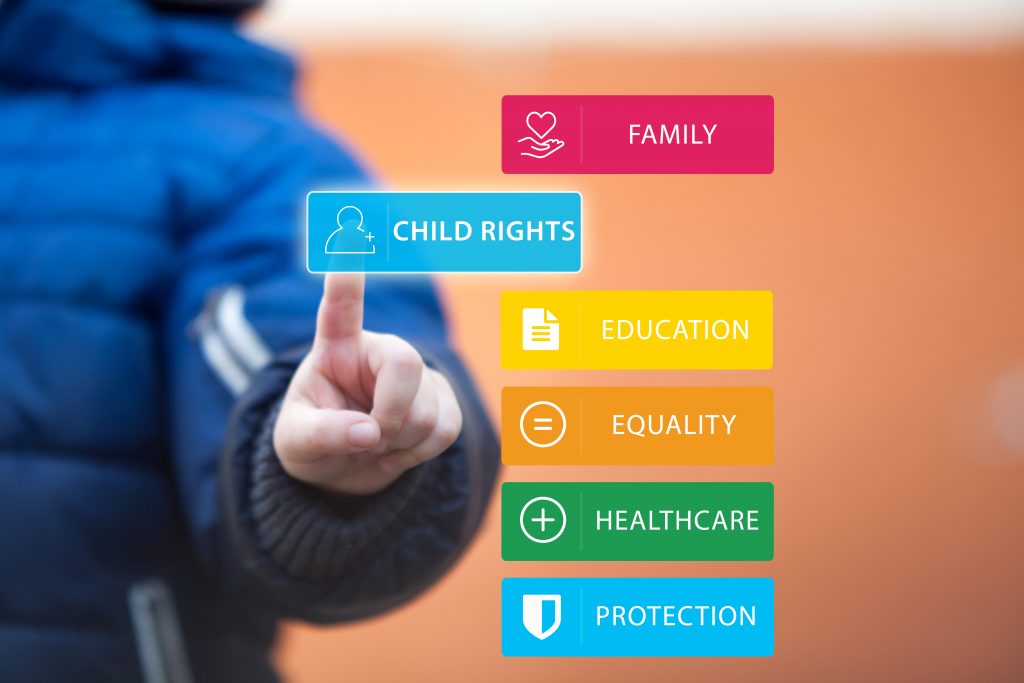Share
by Caroline Ridout Stewart, LCSW
Let me explain this: I am a bleeding-heart liberal who strongly advocates for civil rights. I donate to the American Civil Liberties Union (ACLU) and I march in favor of more respect and compassion for those who suffer from substance use disorders (SUDs). I attended Cal Berkeley in the 1960s and became an anthropologist for a decade. I am now a psychotherapist recently retired from a large, state university psychiatry department with a busy, harm-reduction SUD practice, all while parenting an adult son with a complex psychiatric illness and opioid use disorder. So what is my beef with civil rights? I might surprise you by stating that the current Britney Spears brouhaha is being watched closely by parents of adult children with co-occurring disorders, and frankly we fear our efforts to keep our children from homelessness or death will now be set back twenty years by the global outrage over Spears’s perceived unethical loss of civil rights.

Three months ago, my elderly sister passed away after living behind closed doors in an upscale memory-care unit which featured good food, daily movies and theater productions, and weekly outings. I recall that every time we visited her pre-COVID, she would pack a small bag of clothes and stand at the elevator, demanding that we take her home. She had no recall or awareness that such a return home would inevitably lead to her demise. Before her placement in the locked memory-care unit, she was wandering away and disappearing in our neighborhood thick with canyons and precipitous overlooks. Those of us who live in the neighborhood know well that when we see a helicopter flying low into the canyon, another senior has lost his or her way. We may also know that the helicopter is there for one of our adult children with a co-occurring disorder, now homeless and destitute from months or even years of disorientation. Only yesterday a homeless man was lifted out of the canyon after suffering an overdose.
All the years that my beloved sister was locked on her memory-care unit, entirely against her will, not a single soul ever told me forcing her into a locked unit was a terrible breach of her civil rights. Alas, people understand that without such protective, therapeutic, 24/7 care, my sister would die a painful, untimely death. Despite her chronic complaints about being held against her will, no attorney or magistrate ever entered the locked unit to advocate for my sister’s right to live on her own. Everyone fully understood that my sister’s altered view of the world, informed by her brain disorder, made independent living a lethal prospect. Right this moment, one block from my home, are homeless individuals who are passed out, lying in their own urine under the hot Southern California sun. My neighbors and I pass by looking the other way as we walk to the grocery store. We do not walk by and avert our eyes out of gross indifference, but because there are no legal avenues to hold these individuals in protective, therapeutic environments.
Despite her chronic complaints about being held against her will, no attorney or magistrate ever entered the locked unit to advocate for my sister’s right to live on her own.
Recent legislation in California mandating that emergency rooms (ERs) not discharge impaired individuals to the street (Hayden, 2019) is broken on a daily basis. California has almost no long-term psychiatric beds (Wiener, 2020), and most of the mental health beds and largest psychiatric institutions in our state are overseen by the prison authority (Wiener, 2020). In other words, individuals would have to harm someone or burn a house down to get recurring psychiatric care.
My husband and I recently called 911 and requested an emergency medical team to assess a woman passed out for several hours on a lawn across the street. We feared that the woman might be dead. The fire department showed up with a police unit and they scolded my husband and me for bothering them, stating that this very woman had been taken to the ER the night before and that it was “her choice” to use drugs and live on the street. They were very annoyed at having their precious time stolen by a homeless “drug addict.” They shook the woman awake and we watched her shuffle down the street in a notably altered state. Sadly, we knew that this could have been our son.
Our son has suffered from psychiatric illness and a complex SUD for twentyfive years. He is currently sober, but standing at the precipice of self-destruction as COVID finds him returning to his homeless encampments for friendship and daily human interaction. Substance use deprived him of the natural course of tech comfort that is now required of those attending Alcoholics Anonymous (AA) Zoom meetings. Our son finds himself estranged from his sober community and now willing to throw in the towel and override the COVID lockdown measures and social distancing. Sadly, our son lacks insight into his own disintegrating health and cognition. He sleeps in each day until 1:00 PM and often sounds befuddled, foggy, and overwhelmed. Frankly, we fear that he is using amphetamines to give him the energy taken away by his anxiety and deep depression.
One darling of the civil rights discourse is the Health Insurance Portability and Accountability Act (HIPAA). Our son lacks insight into his own degenerative medical condition, yet my husband and I have no access to his mental health or SUD medical history, let alone his clinical providers. This is particularly heartbreaking, as we are our son’s chief advocates. I fully appreciate that he does not want us in his business, fearing that his return to substance use will alienate us. In his AA meetings he often hears about the evils of codependent parents and the need for more autonomy. Surely Britney Spears’s argument that her father is a moocher who have taken away her rights as a means to steal her money (Wong & Madani, 2021) is not a common issue for most of us who are parents simply wanting to keep our children alive. HIPAA and the current argument that SUDs are the result of childhood trauma both sadly accuse parents—often the only people dedicated to advocating for their children. I hear almost daily from parents in my psychotherapy practice that their adult children have opted not to release their records to anyone and most especially to their parents. Furthermore, here in California, unlike in my sister’s memory-care unit, when individuals are held on a legal 5150 hold informed by grave disability, if the hold is extended by treating clinicians, attorneys can come in and advocate for release (DHCS, 2014). Even if individuals are lucky enough to wind up receiving an overnight stay in a psychiatric unit, prompt discharge is almost always the case, with no alert to family.
My son has a constitution that thrives in supportive, structured settings. He blossoms when in a loving community. How can it be remotely moral or ethical for us to watch our adult children with co-occurring disorders literally dying on the streets, yet argue that it is their choice? Science knows better. An altered brain is an altered brain whether from years of substance use or from old age. Why do we allow the protective holds of one community while kicking the other to the curb? Some of our adult children—when suffering from chronic mental disorganization informed by psychiatric illness and substance use—need long-term, protective, respectful, compassionate, therapeutic holds that shepherd them through the recovery of the mind. Sadly, the primary hold for our children who do not have the money or gravitas of Britney Spears is prison, death, or homelessness.
References
California Department of Health Care Services (DHCS). (2014). Rights for individuals in mental health facilities admitted under the Lanternman-Petris-Short Act. Retrieved from https://www.dhcs.ca.gov/services/Documents/DHCS_Handbook_English.pdf
Hayden, N. (2019). When homeless patients leave the ER, where do they go? New law says hospital is responsible. Desert Sun. Retrieved from https://www.desertsun.com/story/news/health/2019/03/22/new-california-law-hospitals-cant-discharge-homeless-without-care-plan/3132787002/
Wiener, J. (2020). Breakdown: California’s mental health system, explained. Retrieved from https://calmatters.org/explainers/breakdown-californias-mental-health-system-explained/#9fcd1db0-9792-11e9-b4ba-6daafb072cad
Wong, W., & Madani, D. (2021). Can Britney Spears’ father be charged with ‘conservatorship abuse’? Retrieved from https://www.nbcnews.com/pop-culture/pop-culture-news/can-britney-spears-father-be-charged-conservatorship-abuse-n1274089
Caroline Ridout Stewart, LCSW, is a harm-reduction clinician in San Diego, California now working in private practice after twenty years in the Department of Psychiatry at the University of California San Diego, where she was a clinical instructor and supervisor. Stewart has a graduate degree in social anthropology from McGill University and taught anthropology for a decade before becoming a psychotherapist. She has an adopted son who suffers from a complex co-occurring disorder and whose life experience brought Stewart into the field of harm reduction. She has been the president of the board of A New PATH: Parents for Addiction Treatment and Healing for twenty years and now specializes in the treatment of patients with opioid use disorders. Stewart is an essayist, artist, and gardener.






 Counselor Magazine is the official publication of the California Association of Addiction Programs and Professionals (CCAPP). Counselor offers online continuing education, article archives, subscription deals, and article submission guidelines. It has been serving the addiction field for more than thirty years.
Counselor Magazine is the official publication of the California Association of Addiction Programs and Professionals (CCAPP). Counselor offers online continuing education, article archives, subscription deals, and article submission guidelines. It has been serving the addiction field for more than thirty years.